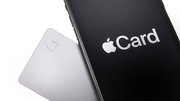Article
After ATMs, what next for Nigerian banks?
Nigeria's leading banks look to advanced ATM functions for a competitive edge.

*About the author: Ejiofor Agada is the tech editor for M2 Newspaper Nigeria. He may be reached atagadaen@techie.com. To submit a comment about this article, e-mailTracy Kitten, editor.
In the last four years, since Nigeria's e-payment switching company, Interswitch, made its debut, the ATM market in Nigeria has exploded. The market is estimated to have approximately 7,000 ATMs, 75 percent of which are owned and operated by financial institutions. Only 25 are operated by independent deployers like Consortium Ltd., SmartPAY Ltd. and ATMOne, even though independent deployers can run ATM networks more cost-effectively than FIs.
Before the ATM-market explosion, Nigeria had only a handful of ATMs, and all were owned and operated by FIs. Consolidation in the banking sector has led a number of banks to deploy more ATMs within their branches, and many are competing aggressively with independent deployers for more off-premises placements.
Competition among banks like IBTC-Chartered Bank Plc., Intercontinental Bank Plc. and Zenith Bank Plc. has fueled the country's proliferation of cash machines.
The advantages for consumers are obvious, with greater access to cash; but the market may be approaching its saturation mark much sooner than anticipated. A scenario to support this theory was first made public by respondents in a recent survey. And, according to the survey, market saturation will only diminish revenue for the banks as acquisition and maintenance costs continue to rise for those which deploy and maintain their own networks.
This unfavorable scenario can be avoided if banks focus on using the ATMs for more than basic cash dispense. Windows-based ATMs have the capacity to process more complex electronic transactions than their legacy counterparts. If properly deployed and harnessed, these terminals could easily be transformed into mini-branches for Nigerian banks.
Earlier this year at the Computers Telecommunications Office exhibition in Lagos, Zenith Bank Plc. publicly showcased an ATM that could be used as an unmanned branch. Though the bank hasn't deployed any of these terminals, the ATMs have the ability to handle an array of functions, including bill payment, cash dispense, and the deposit of cash and checks.
The ATMs on display were developed by Brazil-based Itautec Philco S.A. By using Itautec's ATM IW 1501 series, Zenith Bank illustrates the important role advanced functions will soon play in the Nigerian market.
Deposit automation is expected to have the greatest impact, since 80 percent of Nigeria's bank customers now use the branch for all cash withdrawals and deposits. Once banks train customers to conduct those transactions at the ATM, they'll be able to reach more consumers in remote areas.
Before the launch of the Itautec series, Zenith and other Nigerian banks ran basic ATMs from Wincor Nixdorf International, NCR Corp. and Fujitsu Siemens.
Itautec is the first company to introduce an advanced function ATM with automated deposit capabilities in Nigeria.
Once deposit automation becomes more widespread, Nigerian banks will likely look to revenue-generating functions like advertising and bill payment.
So far Interswitch is leading a revolution in that regard by partnering with MTN to dispense advertising airtime over some ATMs. But as laudable as that move is, it is also going to face difficulties, primarily because the majority of the country's terminals lack the capability to run ads.
Banking Executive SummaryAdvertising / CRMTrends / StatisticsNorth AmericaMiddle East & AfricaDistributors / ISO / IADRetail / Off-PremisesUnderbanked / UnbankedOtherBank / Credit UnionInnovationItautecWincor Nixdorf International













